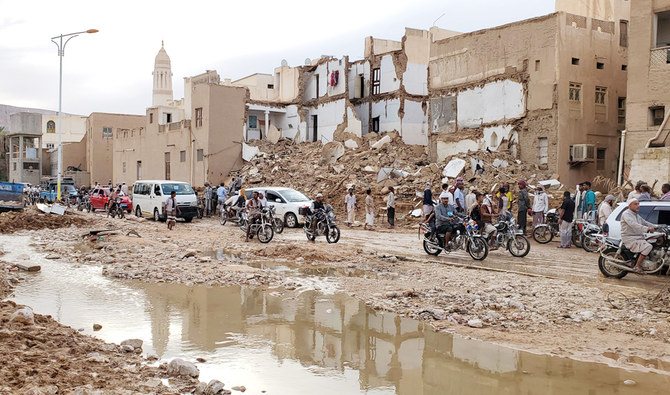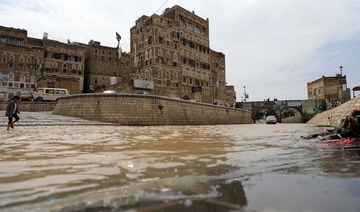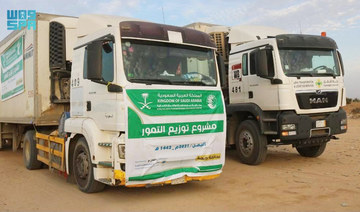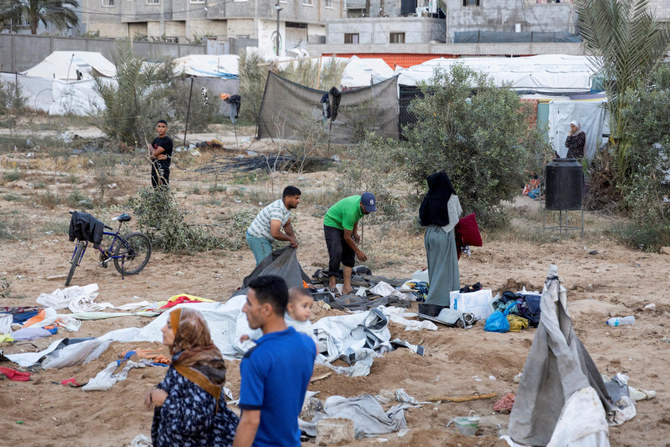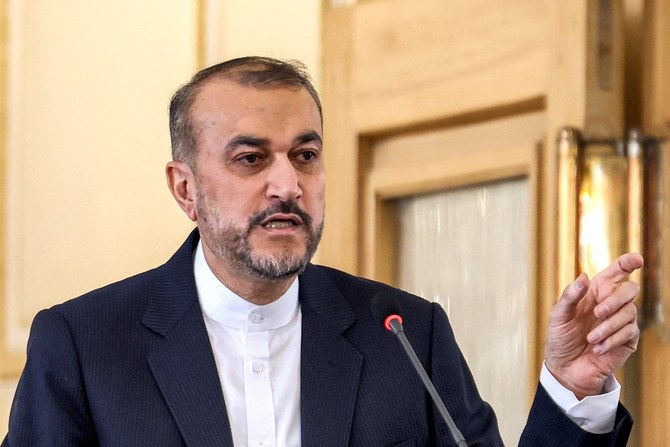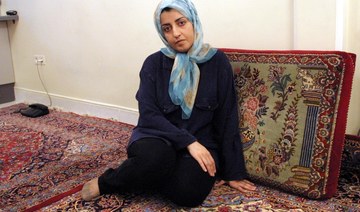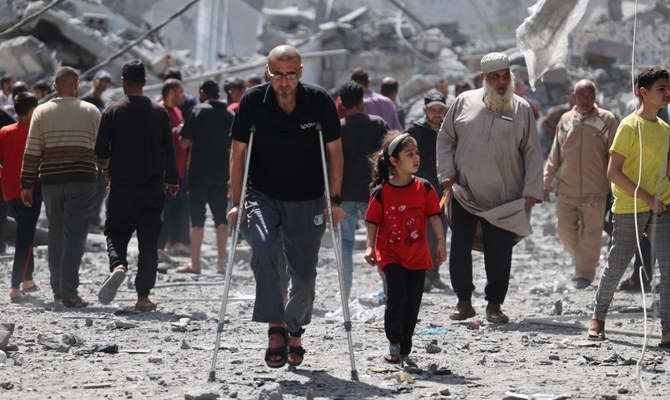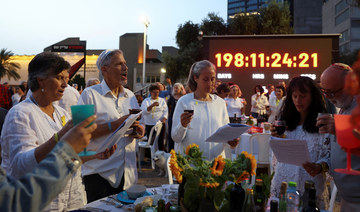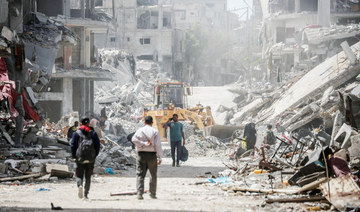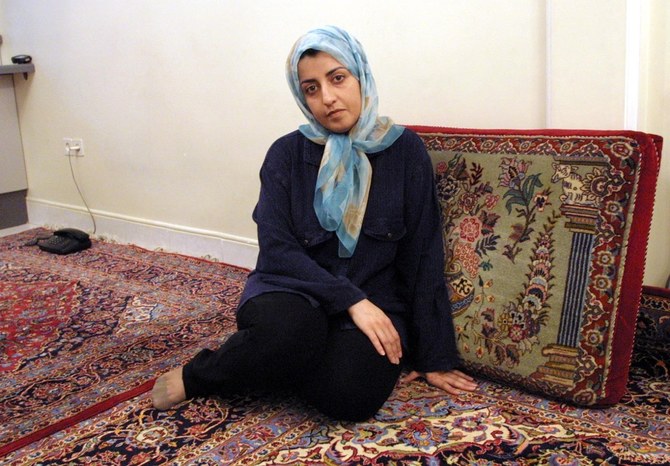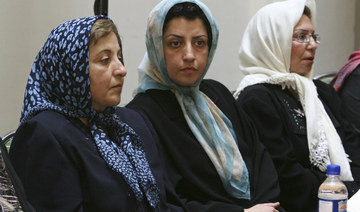AL-MUKALLA: Heavy flooding in southeast Yemen has left five people dead and hundreds homeless as the war-torn country battles a new wave of coronavirus.
Most of the deaths occurred on Sunday in the southeastern province of Hadramout, where heavy rains triggered flash floods that killed five people, injured two and destroyed at least 10 houses in Tarim’s Aideed district.
Residents told Arab News that floodwaters swept through parts of the city, washing away houses, cars and livestock.
A family of three were killed by falling debris after a house collapsed in the torrent.
“People have never seen such heavy flooding for the last three decades,” Hadad Mousaid, a resident, told Arab News.
Amateur videos showed mud houses disappearing as surging floodwaters covered streets, parks and buildings.
Local authorities declared Tarim a disaster area, ordered financial assistance of 2 million Yemeni rials ($2,250) for each affected family, and sent an urgent appeal for relief aid to help displaced people return to their homes.
Officials believe that the damaged and destroyed houses were built near or on watercourses.
Usam Al-Katheri, deputy governor of Hadramout, said on Monday that he had set up a committee to question officials who approved licenses for building the houses.
More than 80 families have been displaced from their homes, he added.
Floodwaters also covered farms and land in Lahj, Aden and Shabwa provinces, but no deaths were reported.
On Monday, the country’s National Meteorological Center issued a warning against driving through Yemen’s central highlands or southern and western coasts.
Last year, similar flash floods and torrential rains killed dozens of people and washed away houses, exacerbating the already dire humanitarian crisis in the country.
Many houses in the UNESCO-listed oil city of Sanaa and the walled city of Shibam, in Hadramout province, crumbled in the heavy downpours.
In May last year, hundreds of people in Aden died of dengue fever, chikungunya, Ebola, malaria, pneumonic plague and other illnesses after heavy floods destroyed the city’s roads, drainage system, drinking water pipelines and electricity towers.
Health officials repeated their concerns about a resurgence of those diseases in Aden and other floods-hit areas as floodwaters halted a vaccination campaign to contain a new wave of coronavirus.
Dr. Ishraq Al-Subaee, a spokesman for the Aden-based National Coronavirus Committee, told Arab News on Monday that many Yemeni provinces have delayed vaccination campaigns because mobile medical teams are unable to reach health facilities due to the flooding.
“We are also concerned about the groundwater left by the rain in districts and streets. Those are breeding sites for mosquitoes,” she said.
Despite the heavy rains, the National Coronavirus Committee said that new cases of COVID-19 have fallen in recent days.
On Sunday, the committee recorded 16 news cases and four deaths, bringing the total number of confirmed cases since April 2020 to 6,341, including 1,233 deaths and 2,875 recoveries.
The following day eight new cases and three deaths were recorded, the lowest number of cases since February.





